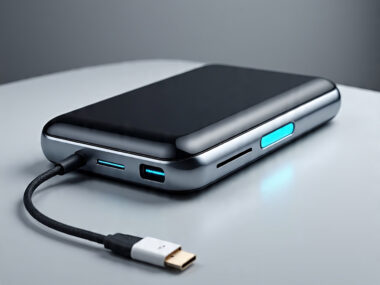Car batteries are the heartbeat of your ride—without them, you’re stuck pushing or begging for a jumpstart. If you’re wondering “how much is a car battery in Nigeria?”, I’ve got you covered with the latest scoop as of March 26, 2025. Prices in Nigeria vary based on brand, size, and where you buy, typically ranging from ₦25,000 to ₦150,000. Let’s dive into the details—costs, factors, and top spots to grab one—so you can keep your wheels rolling without breaking the bank!
What’s a Car Battery All About?
Think of a car battery as your vehicle’s power plug—it’s a rechargeable pack that jolts the starter to crank your engine alive. Beyond that, it keeps your lights, radio, and gadgets humming when the engine’s off. In Nigeria, where heat and bumpy roads test everything, a solid battery’s a must. But prices? They’re a moving target—let’s break it down.

How Much Does a Car Battery Cost in Nigeria?
Price Range: From Basic to Beastly
Car battery prices hinge on capacity (measured in ampere-hours, or Ah) and brand cred. Here’s the 2025 rundown:
- Small Batteries (45–62 Ah): ₦25,000–₦40,000. Perfect for compact cars like a Toyota Corolla.
- Mid-Range (75–100 Ah): ₦45,000–₦80,000. Fits SUVs or sedans—think Honda Accord.
- Heavy Duty (150–200 Ah): ₦90,000–₦150,000. Built for trucks or big rigs.
These are fresh figures, but inflation and forex rates can nudge them up—more on that soon!
Tokunbo vs. New: What’s the Deal?
“Tokunbo” (used, imported) batteries are hot in Nigeria—cheaper and often trusted. A tokunbo 75 Ah might go for ₦40,000–₦60,000, while a brand-new one hits ₦60,000–₦80,000. New batteries from top brands like Bosch or Solite? You’re looking at the higher end—worth it for the warranty!
What Drives Car Battery Prices in Nigeria?
Brand Vibes
Big names carry weight. Bosch or Solite (Korean faves) start at ₦50,000 for 62 Ah—reliable and long-lasting. Local or lesser-known brands? You might snag a 75 Ah for ₦40,000, but durability’s a gamble. It’s like picking a trusted chef over a street vendor—quality costs.
Battery Size and Power
Size matters—literally. A 45 Ah battery for a small car’s cheap—₦25,000ish. A 200 Ah monster for a truck? Up to ₦150,000. More power, more naira—simple as that.
New or Used
Tokunbo batteries flood the market—imported from Europe or the US, they’re often 20–30% cheaper. A new 100 Ah Solite’s ₦80,000, but a tokunbo version? Maybe ₦55,000. Risky, sure, but budget-friendly.
Where You Buy
Location’s a price shifter. Lagos or Abuja auto hubs like Jumia Nigeria charge ₦50,000–₦90,000 for mid-range batteries. Rural shops? Closer to ₦40,000–₦70,000. Online’s slick, but add ₦2,000–₦5,000 for delivery.
Economy Chaos
Most batteries are imported, so dollar rates sting. In 2023, a 75 Ah battery averaged ₦45,000—now it’s ₦60,000+ due to naira dips. Duties and transport costs pile on too—northern prices might creep higher than southern ones.
Read Also: How Much Is Pumping Machine in Nigeria? 2025 Price Guide
Where Can You Buy a Car Battery in Nigeria?
Auto Shops and Markets
Physical spots are clutch:
- Ladipo Market (Lagos): Tokunbo heaven—₦40,000–₦70,000 for most sizes.
- Auto Spare Parts (Abuja): Mix of new and used—₦50,000–₦100,000.
- Specialty Stores: Think Battery.com.ng—new batteries from ₦60,000.
Online Hauls
E-commerce rocks for options:
- Jumia Nigeria: ₦45,000–₦120,000. Filters snag deals—delivery’s extra.
- Konga: ₦50,000–₦130,000. Fast in cities—sometimes free over ₦50,000.
- Jiji.ng: Tokunbo steals from ₦35,000—haggle online!
Rural? Local mechanics might hook you up—₦40,000–₦80,000, stock depending.
Read Also: How Much is a Toyota Camry in Nigeria? 2025 Buying Guide
Why Car Batteries Matter in Nigeria
Road Reality
Heat fries batteries—Nigeria’s sun’s no joke. A good one lasts 3–5 years; a dud? Maybe a year. You don’t want to stall on Third Mainland Bridge—trust me.
Power Backup
It’s not just starting—your battery juices the AC, lights, and stereo when the engine’s off. Weak one? Dead vibes mid-jam.
Tokunbo Trust
Used batteries thrive here—cheaper and often outlast sketchy newbies. A tokunbo Bosch might be your MVP.
Tips to Save on Car Batteries
Hunt Jumia sales—prices dip to ₦40,000 sometimes. Tokunbo’s your budget pal—test it first. Skip rush delivery unless you’re stranded—saves ₦5,000. Check warranties—12–24 months is gold. Haggle at markets—₦2,000 off ain’t rare!
Wrapping Up
So, how much is a car battery in Nigeria? You’re looking at ₦25,000–₦150,000 in 2025—₦40,000 for a tokunbo 75 Ah, ₦80,000 for a new Solite 100 Ah, or ₦150,000 for a truck beast. From Konga to Ladipo, options abound—pick smart, drive happy. What’s your car’s battery story? Dead or kicking?
FAQs About Car Batteries in Nigeria
- What’s the cheapest car battery I can get?
A tokunbo 45 Ah starts at ₦25,000—small cars love it. - How much is a new 75 Ah battery?
Brands like Solite hit ₦60,000–₦80,000—fresh and warranted. - Are tokunbo batteries worth it?
Yep—₦40,000–₦60,000 for 75 Ah beats new if you test ‘em right. - Why’s Lagos pricier than rural spots?
Demand and logistics—₦50,000+ in cities vs. ₦40,000 out there. - How long should a battery last here?
Good ones? 3–5 years—heat and use can cut it shorter.


